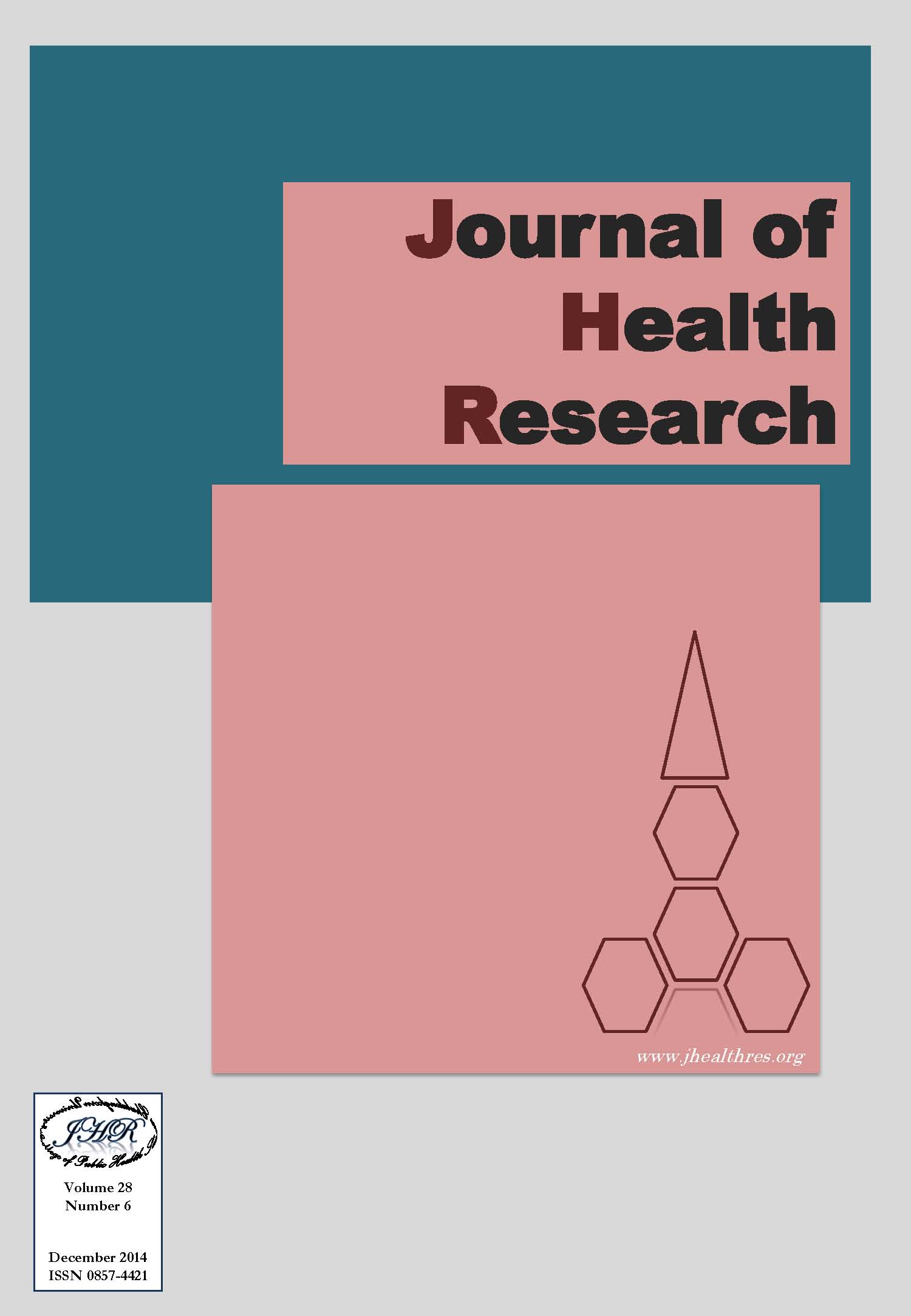Antimalarial Effects of Methanolic Leaf Extract of Andrographis Paniculata on Plasmodium Berghei
Keywords:
Andrographis paniculata extract, Growth inhibition, Plasmodium bergheiAbstract
Since the emergence of drug resistant strains of malaria parasites, the rate of resistance has been increasing and limiting adequate treatment of malaria. Consequently, there is an urgent global need to isolate new classes of antimalarial compounds from natural sources. The aim of this study was to test Andrographis paniculata leaf extract for the ability to treat malaria. Methanolic leaf extract of A. paniculata was freshly dissolved in DMSO and diluted with 0.9% NaCl to obtain the doses of 2, 20, and 100 mg/kg. The four-day suppressive, curative effects against established infection and prophylactic models of the extract were carried out by intraperitoneal treatment the extracts in P. berghei ANKA infected ICR mice once a day, using chloroquine as a positive control. Parasitemia was then monitored, and percent inhibition was subsequently calculated. It was found that the extracts exerted dose dependent suppressive, prophylactic and curative effects. Interestingly, the extract at a dose of 100 mg/kg showed significantly (P<0.05) the highest activity for inhibition of malaria. Moreover, combination of chloroquine and the extract showed substantial enhancement in their antimalarial activity significantly (P<0.05) when compared to chloroquine treatment alone. It can be concluded that A. paniculata leaf extract has potential antimalarial property and in combination with chloroquine could be an effective, alternative source of herbal antimalarial drugs.







